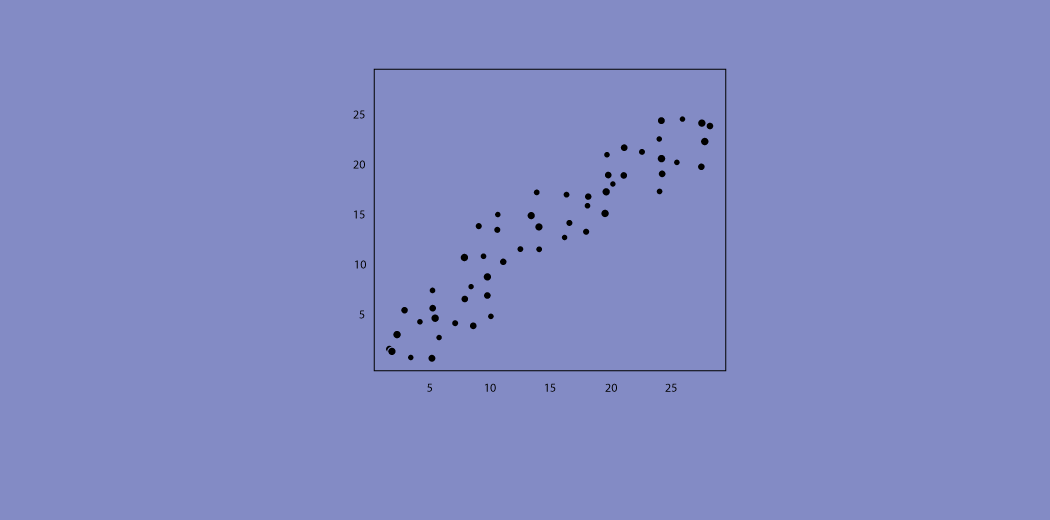In the dynamic landscape of digital marketing, the integration of machine learning (ML) techniques has become indispensable for businesses aiming to stay ahead of the curve.
From predictive analytics to customer segmentation and personalised targeting, BigQuery ML empowers digital agencies to supercharge their marketing efforts with data-driven intelligence. By leveraging the platform’s scalability, flexibility, and ease of use, marketers can unlock new avenues for optimisation, experimentation, and innovation in their campaigns.
In this guide, we’ll explore the myriad ways in which BigQuery ML can revolutionise digital marketing strategies, empowering agencies to harness the full potential of their data assets and deliver impactful results for their clients.
What is BigQuery ML?
BigQuery ML is a groundbreaking tool within Google’s BigQuery platform, enabling marketers to seamlessly integrate machine learning into their digital strategies. It simplifies complex ML processes by allowing users to build and deploy models directly within their existing data infrastructure, without the need for separate ML expertise or infrastructure.
This accessibility is transformative for marketing agencies, democratising advanced analytics and empowering teams to derive actionable insights from vast datasets. By leveraging familiar SQL syntax, BigQuery ML enables marketers to harness the power of predictive analytics, customer segmentation, and personalised targeting with ease.
Its significance lies in its ability to democratise machine learning, empowering agencies to unlock the full potential of their data and drive tangible results in today’s competitive digital landscape.
The Ease of Implementing BigQuery ML
Implementing BigQuery ML seamlessly integrates into existing marketing workflows, boasting a user-friendly interface and minimal barriers to entry. With its intuitive design and familiar SQL syntax, marketers can swiftly leverage machine learning techniques without extensive technical expertise.
BigQuery ML eliminates the need for complex infrastructure or specialised teams, streamlining the process of model creation and deployment. Its compatibility with Google Cloud Platform further enhances ease of implementation, providing seamless integration with other marketing tools and services. This simplicity accelerates the adoption of advanced analytics within marketing agencies, empowering teams to extract actionable insights and optimise campaigns with unprecedented efficiency.
Overall, the ease of implementing BigQuery ML revolutionises marketing workflows, enabling agencies to stay agile and competitive in today’s data-driven landscape.
Comprehensive Forecasting with ML.FORECAST
ML.FORECAST is a game-changing feature within BigQuery ML that revolutionises forecasting in digital marketing. Unlike traditional methods that rely on historical data and manual analysis, ML.FORECAST leverages advanced machine learning algorithms to generate real-time predictions on a wide range of metrics, extending beyond just revenue.
By analysing patterns and trends within datasets, ML.FORECAST can accurately predict future outcomes, empowering marketers to anticipate shifts in consumer behaviour, campaign performance, and market dynamics. This enables proactive decision-making and strategic planning, allowing digital agencies to stay ahead of the competition and capitalise on emerging opportunities.
Moreover, ML.FORECAST offers unparalleled flexibility, allowing marketers to tailor forecasts to suit specific business objectives and use cases. Whether forecasting website traffic, conversion rates, customer churn, or advertising ROI, the tool provides actionable insights that drive impactful outcomes.
With ML.FORECAST, digital marketers can unlock new levels of precision and efficiency in their forecasting efforts, enabling them to optimise resource allocation, budgeting, and campaign strategies with confidence. Ultimately, ML.FORECAST empowers marketers to make data-driven decisions in real-time, enhancing agility and driving sustainable growth in today’s dynamic digital landscape.
Enhancing Content Strategy with ML.GENERATE_TEXT
ML.GENERATE_TEXT is a revolutionary feature within BigQuery ML that empowers marketers to enhance their content strategy by organising unstructured data and generating valuable insights from ad themes and user reviews. By leveraging state-of-the-art natural language processing (NLP) algorithms, ML.GENERATE_TEXT can analyse vast quantities of unstructured text data, such as customer reviews, social media posts, and ad copy.
This capability allows marketers to uncover trends, sentiment patterns, and key themes within their content, enabling them to tailor their messaging and campaigns to better resonate with their target audience. For example, ML.GENERATE_TEXT can identify recurring topics or sentiments across user reviews, helping marketers understand customer preferences and pain points.
In addition, ML.GENERATE_TEXT can also generate text-based content, such as ad copy or product descriptions, based on the insights gleaned from the analysis of existing data. This streamlines the content creation process and ensures that messaging is aligned with customer needs and preferences.
Overall, ML.GENERATE_TEXT empowers marketers to extract actionable insights from unstructured data and leverage these insights to inform and optimise their content strategy, ultimately driving engagement, conversions, and brand loyalty.
Insightful Analysis with ML.UNDERSTAND_TEXT
ML.UNDERSTAND_TEXT within BigQuery ML harnesses the power of natural language processing (NLP) to provide marketers with deep insights by extracting entities and sentiment from text data. This functionality is particularly beneficial in understanding search keyword intent, a crucial aspect of digital marketing strategy.
By analysing the content of search queries, ML.UNDERSTAND_TEXT can identify key entities, such as products, brands, or locations, mentioned within the text. This enables marketers to gain a comprehensive understanding of the topics and themes that are relevant to their target audience, allowing for more precise targeting and optimisation of advertising campaigns.
Furthermore, ML.UNDERSTAND_TEXT can analyse the sentiment expressed in search queries, helping marketers gauge the emotional context behind user interactions. Understanding the sentiment associated with specific keywords can inform content creation, ad messaging, and overall brand strategy, enabling marketers to tailor their approach to better resonate with their audience.
ML.UNDERSTAND_TEXT empowers marketers with valuable insights derived from text data, enabling them to optimise their digital marketing efforts and drive more meaningful connections with their audience.
Advanced Image Ad Analytics with ML.ANNOTATE_IMAGE
ML.ANNOTATE_IMAGE, a feature within BigQuery ML, revolutionises image ad analytics by automatically labelling images and extracting crucial information such as colours and objects. This functionality significantly enhances the analysis of image ads, providing marketers with deeper insights into their performance.
By automatically labelling images, ML.ANNOTATE_IMAGE simplifies the process of categorising and organising vast quantities of visual data. Marketers can effortlessly identify the content and context of image ads, enabling more precise targeting and optimisation strategies.
Moreover, the extraction of colours from images offers valuable insights into visual branding and design aesthetics. Marketers can analyse colour palettes to ensure consistency with brand identity and evoke desired emotional responses from viewers.
ML.ANNOTATE_IMAGE also identifies objects within images, allowing marketers to understand the visual elements that resonate most with their audience. This insight can inform creative decisions and help optimise image ad content for maximum impact.
Overall, ML.ANNOTATE_IMAGE empowers marketers with advanced image ad analytics, enabling them to glean actionable insights that drive performance and engagement. By automating the analysis process, this feature streamlines workflows and enhances the effectiveness of image-based marketing campaigns.
Discovering Patterns with Linear Regressions
Linear regressions play a crucial role in uncovering relationships between factors within marketing data, transcending intuition-based decisions. By employing mathematical models to analyse the data, linear regressions provide quantitative insights into how changes in one variable correlate with changes in another. In marketing, this means identifying patterns and trends that may not be immediately apparent through qualitative analysis alone.
For example, linear regressions can help determine the impact of advertising spend on sales revenue or the influence of demographic factors on customer behaviour. By quantifying these relationships, marketers can make data-driven decisions, optimising resource allocation and campaign strategies for maximum effectiveness.
Ultimately, linear regressions empower marketers to move beyond subjective judgments and base their decisions on empirical evidence, enhancing the efficiency and accuracy of their marketing efforts.
Audience and Keyword Optimization with K-Means Clustering
K-means clustering is a powerful tool in digital marketing, aiding in the segmentation of both keywords and audiences to drive more effective strategies. By grouping similar data points together based on their characteristics, k-means clustering allows marketers to identify distinct segments within their keyword and audience datasets.
For keywords, this segmentation enables marketers to categorise terms based on their relevance, search volume, and performance metrics. By grouping keywords with similar attributes, marketers can tailor their content and advertising strategies to better align with the needs and interests of specific audience segments.
Similarly, k-means clustering facilitates audience segmentation by grouping users with similar behaviour patterns, demographics, or preferences. This allows marketers to personalise messaging, offers, and targeting strategies to resonate more effectively with each segment.
In a nutshell, k-means clustering empowers marketers to optimise their keyword targeting and audience segmentation strategies, leading to more relevant and impactful marketing campaigns. By understanding the distinct characteristics and needs of different audience segments, marketers can tailor their approach to maximise engagement, conversions, and overall campaign success.
How BigQuery ML Empowers Digital Marketing Agencies
BigQuery ML offers digital marketing agencies a plethora of advantages, revolutionising their approach to data-driven decision-making. Firstly, it enhances decision-making by providing advanced analytics and predictive modelling capabilities, enabling agencies to extract actionable insights from vast datasets. This leads to more informed and strategic decision-making processes.]
Secondly, BigQuery ML streamlines workflows and improves efficiency by integrating machine learning directly into existing data infrastructure, eliminating the need for complex setups or specialised expertise. This empowers agencies to iterate and optimise campaigns more quickly, driving better results for their clients.
Lastly, by leveraging the power of BigQuery ML, agencies can deliver superior client satisfaction by offering more personalised and targeted marketing strategies. Clients benefit from more effective campaigns that are tailored to their specific needs and goals, resulting in increased ROI and long-term success. Overall, BigQuery ML empowers digital marketing agencies to stay ahead of the competition and deliver exceptional results for their clients.
Implementing BigQuery ML in Your Marketing Strategy
Incorporating BigQuery ML into your marketing strategy can significantly enhance your agency’s capabilities and drive impressive results. Here’s a step-by-step guide to get started:
- Assess Your Data Infrastructure: Evaluate your existing data infrastructure and identify areas where BigQuery ML can add value. Consider data sources, storage, and accessibility.
- Familiarise Yourself with BigQuery ML: Take advantage of Google’s resources and documentation to understand the features and capabilities of BigQuery ML. Familiarise yourself with its syntax and functionality.
- Identify Use Cases: Determine specific use cases where BigQuery ML can benefit your agency, such as predictive analytics, customer segmentation, or content optimization.
- Start Small: Begin by experimenting with a small-scale project to gain hands-on experience with BigQuery ML. This could involve building a simple predictive model or conducting basic data analysis.
- Collaborate Across Teams: Involve data scientists, analysts, and marketers in the implementation process to ensure cross-functional alignment and collaboration.
- Measure ROI: Track the impact of BigQuery ML on your marketing efforts, including improvements in campaign performance, efficiency gains, and cost savings. Use these metrics to demonstrate the ROI of integrating BigQuery ML into your strategy.
By following these steps, your agency can seamlessly integrate BigQuery ML into your marketing strategy, unlocking its full potential and driving tangible results.
Key Takeaways
In conclusion, leveraging BigQuery ML in digital marketing offers unparalleled advantages. By harnessing machine learning capabilities directly within existing data infrastructure, agencies can enhance decision-making, streamline workflows, and deliver more personalised campaigns.
BigQuery ML empowers marketers to extract actionable insights, optimise strategies, and drive superior results for clients. Its ease of integration and potential for high ROI make it a game-changer in today’s data-driven landscape, positioning agencies for success in an increasingly competitive market.
Embracing BigQuery ML is not just about staying ahead—it’s about redefining what’s possible in digital marketing.
FAQ on BigQuery ML in Digital Marketing
How does BigQuery ML benefit digital marketing strategies?
BigQuery ML enhances digital marketing strategies by integrating machine learning directly into data infrastructure, enabling advanced analytics, predictive modelling, and personalised campaigns.
Is BigQuery ML suitable for all sizes of marketing agencies?
Yes, BigQuery ML is suitable for all sizes of marketing agencies. Its scalability and flexibility accommodate the needs of both small-scale operations and large enterprises.
How does BigQuery ML compare to traditional marketing analytics tools?
BigQuery ML offers advantages over traditional marketing analytics tools by providing seamless integration with existing data infrastructure, advanced machine learning capabilities, and the ability to handle vast datasets for more accurate insights and predictive modelling.



